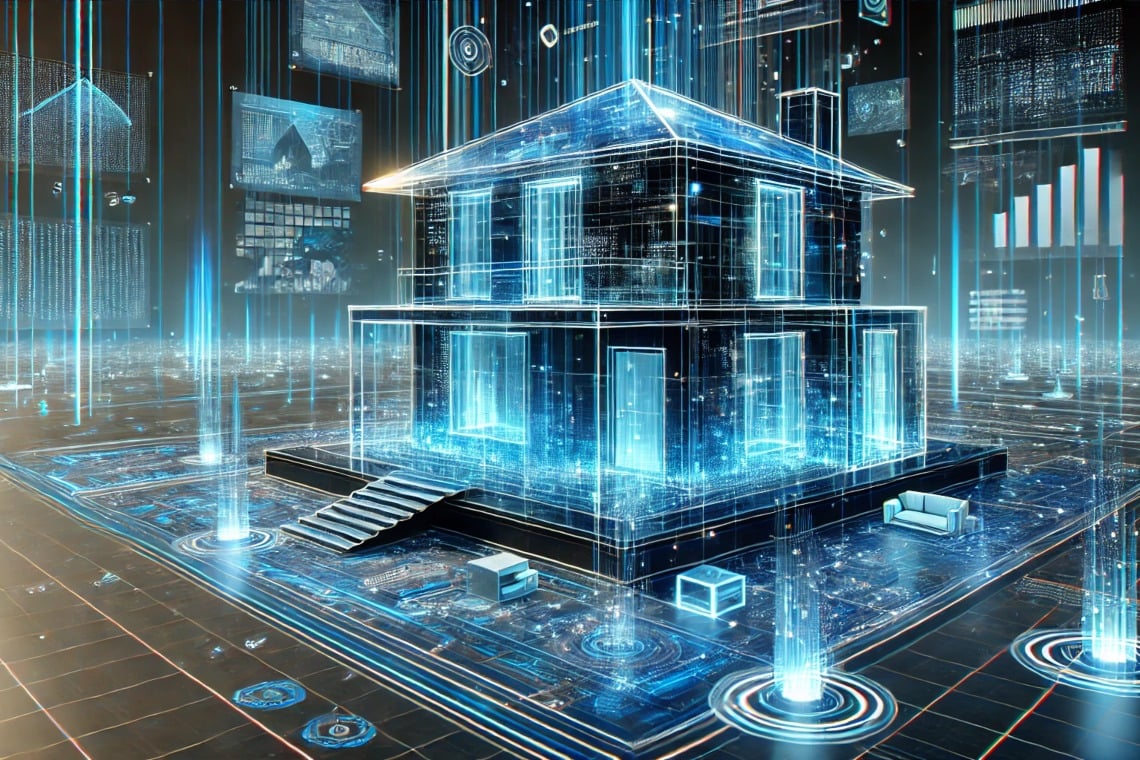The tokenization of real-world property (Real-World Assets, RWA) is rising as one of the most promising developments in the world monetary sector.
According to estimates, the worth of the tokenization market will exceed 30 trillion {dollars} by 2030, pushed primarily by the involvement of conventional and revolutionary monetary institutions. This transformation is ready to redefine the funding panorama, democratizing entry to property and bettering the effectivity of world markets.
What is the tokenization of RWA?
The tokenization of real-world property includes the conversion of bodily or monetary property, reminiscent of actual property, bonds, or commodities, into digital representations on a blockchain. These tokens might be simply traded, fractioned, and managed by decentralized platforms, eliminating many conventional intermediaries.
This method permits buyers to entry fractions of high-value property, reminiscent of a business constructing or a piece of artwork, breaking down the conventional obstacles associated to value and liquidity. Furthermore, the transparency and traceability provided by the blockchain considerably improve safety and belief in the markets.
Financial institutions are enjoying an important position in the growth of the tokenization of RWAs. Banks, funding funds, and different conventional organizations more and more acknowledge the potential of blockchain to revolutionize operational processes, enhance effectivity, and create new incomes alternatives.
Their participation is crucial for a number of causes:
- Credibility and regulatory compliance: Financial institutions have the obligatory expertise to navigate regulated environments, guaranteeing that tokenization processes adjust to native and world rules.
- Market entry functionality: Thanks to their consolidated networks, these institutions can appeal to buyers and facilitate the distribution of tokens to a variety of shoppers.
- Infrastructure improvement: Many banks and institutions are investing in the improvement of blockchain platforms and protocols devoted to tokenization, contributing to standardizing the sector.
The alternatives provided by tokenizzazione
The tokenization of RWA affords vital benefits, together with:
- Financial accessibility: buyers should buy fractions of high-value property, making funding alternatives accessible that have been beforehand reserved for just a few.
- Improved liquidity: the skill to simply commerce tokens on digital platforms will increase liquidity for historically illiquid property, reminiscent of actual property or works of artwork.
- Reduced prices: the blockchain eliminates many intermediaries, lowering the prices related to transactions and bettering operational effectivity.
- Transparency and safety: blockchain ledgers guarantee full traceability of transactions, lowering the danger of fraud and bettering belief amongst the events concerned.
A growth pushed by innovation
The growth of the RWA market isn’t solely about the massive monetary institutions. Fintech firms and startups are additionally making a major contribution, leveraging their agility to innovate extra shortly than the giants of the sector. However, the collaboration between these two worlds – conventional and revolutionary – appears to be the key to unlocking the full potential of tokenization.
Initiatives reminiscent of the creation of stablecoins backed by actual property and token administration platforms are already gaining traction, exhibiting the sensible advantages of tokenization in areas reminiscent of actual property, power, and commodities.
Despite the promising outlook, the sector should face some vital challenges. Among these:
- Regulation: the absence of clear guidelines at a worldwide stage can decelerate the adoption of tokenization.
- Market training: many conventional buyers are nonetheless skeptical about the use of blockchains, making consciousness campaigns obligatory.
- Interoperabilità tecnologica: it’s important that the completely different tokenization platforms are capable of talk and function collectively.
The future of tokenizzazione
With the rising involvement of monetary institutions, the tokenization of real-world property is ready to develop into a pillar of world markets. It is not only a technological revolution, however a paradigm shift that will democratize entry to investments, bettering effectivity and monetary inclusion.
By 2030, the sector may attain 30 trillion {dollars} in worth, marking a turning level in the historical past of world finance. Financial institutions, with their mixture of expertise and capability for innovation, will be the essential engine of this extraordinary growth.









